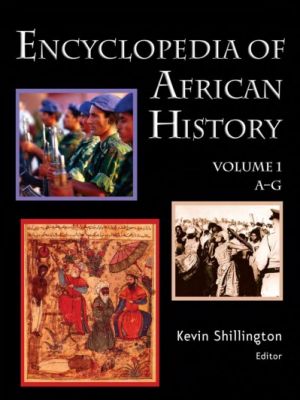Detail Buku

| Judul | Encyclopedia of African History |
| Penulis | |
| Deskripsi Fisik | 1.864 halaman |
| Penerbit | Fitzroy Dearborn |
| Kota | New York |
| Tahun | 2005 |
| ISBN | |
| DDC | |
| No Panggil | |
| Genre/Subjek | |
| Bahasa | Inggris |
| Seri | |
| Update Terakhir | Rabu, 05 Mei 2021, 12:14 wib |
African history as a modern academic discipline came of age in the 1950s, the decade of African nationalism that saw the parallel emergence of African institutions of higher education on the continent. The true origins of African higher education can be traced back many centuries to the Islamic universities of North Africa, Timbuktu, and Cairo, while the origins of recorded history itself are to be found in the scrolls of ancient Egypt, probably the oldest recorded history in the world. Beyond the reaches of the Roman Empire in North Africa, the tradition of keeping written records of events, ideas, and dynasties was followed, almost continuously, by the priests and scholars of ancient, medieval, and modern Ethiopia. Meanwhile, preliterate African societies recorded their histories in the oral memories and ancestral traditions that were faithfully handed down from generation to generation. Sometimes these were adapted to suit the political imperatives of current ruling elites, but as the modern academic historian knows only too well, the written record is similarly vulnerable to the interpretation of the recorder.
Before the European incursion at the end of the nineteenth century, literate Africans in western and southern Africa had appreciated the importance of recording oral traditions and writing the history of their own people. Following the colonial intrusion, however, Europeans took over the writing of African history, and interpreted it primarily as a timeless backdrop to their own appearance on the scene. They brought with them not only the social Darwinism of the imperial project, but also the perspective of their own historical traditions. Thus, early colonial historians saw an Africa of warring “tribes” peopled by waves of migration, such as Roman imperialists had seen and conquered in Western Europe some 2000 years earlier. To these historians, African peoples had no history of significance and were distinguished only by a variety of custom and tradition. Any contrary evidence of indigenous sophistication and development was interpreted as the work of outside (by implication, northern Eurasian) immigration or influence. The origins of Great Zimbabwe (a Shona kingdom founded between 1100 and 1450), originally believed by European colonial historians to be non-African despite much evidence to the contrary, proved to be the most notorious and persistent of these myths. Despite early academic challenges, these European- constructed myths about Africa’s past exerted a dominant influence on approaches to African history until well into the second half of the twentieth century.
Daftar Lampiran
|
|
Africa 05-Mei-2021, 12:17 WIB |
Baca |